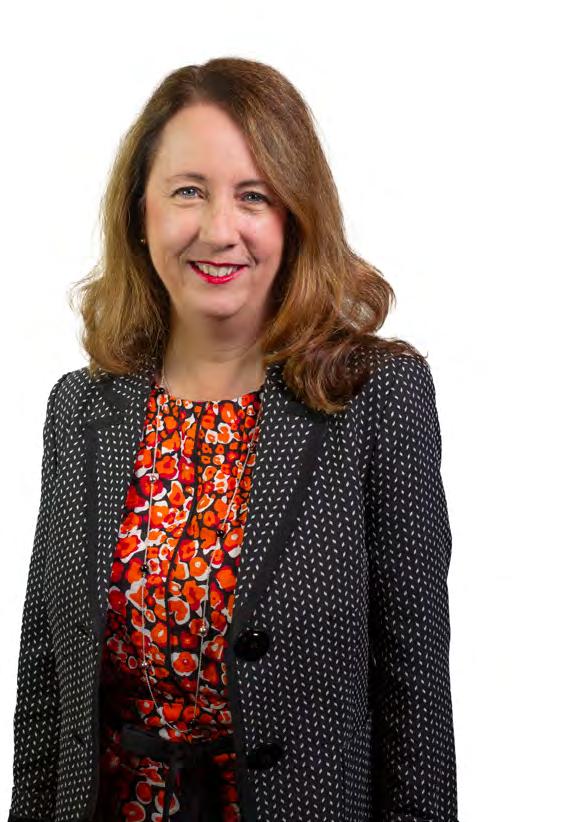
3 minute read
Meet RACP’s new president
Dr Jacqueline Small was sworn in as the new president of the Royal Australasian College of Physicians (RACP) in May 2022. She will be leading the College until 2024 through a challenging period, which will hopefully be a time of meaningful, lasting change for specialist health in Australia and Aotearoa New Zealand.
Dr Small, a developmental paediatrician in Sydney, works with two teams in her specialty. She leads a multidisciplinary team that assesses children with developmental disabilities or Global Developmental Delay (GDD). She’s also the clinical lead of a specialised intellectual disability health team for children and adults with intellectual disability. Dr Small was drawn to developmental paediatrics because she can make a big difference in children’s lives, and this can have long-term benefits. “We look at the wellbeing of children— physical health, mental health and developmental issues; the family and community around them is considered vitally important. I really like that our approach is holistic.” She says she feels fulfilled by the opportunity to advocate with people with intellectual disability, who experience significant health inequities in Australia and Aotearoa New Zealand.
Advertisement
Dr Small’s medical journey started when she switched tracks from science to medicine in her first year at university. “I was quite interested in general practice, but after doing a paediatric term, I realised that’s where my heart lay. I’ve always had a leaning towards a more generalist, comprehensive approach.” Her priorities as RACP president are mountainous and many. She will focus on governance, membership engagement, workforce, wellbeing, gender equity in leadership roles, and health reform that includes physicians and paediatricians as vital elements.
Dr Small hopes to build stronger engagement between RACP and its members. One of the biggest issues, unsurprisingly, is member and Trainee wellbeing, with workforce stress at an all-time high. “The wellbeing of members is vital, not just for [RACP], but for our health system. So that’s a real focus for me.”
She will also put timely emphasis on gender equity in leadership roles.
RACP, along with RACS, is partnering with Women in Healthcare Leadership to research how best to support female healthcare professionals in their career progression.
At a turbulent time, health reform is high on Dr Small’s agenda. “COVID-19 has shown us what we knew before; there are significant health inequities that current models of healthcare haven’t been able to address. Our distressed workforce is an indicator that we have to do something differently.” Among her most prominent RACP roles, Dr Small spent six years as chair of the Paediatric Policy and Advocacy Committee. She’s also been chair of the Chapter of Community Child Health and chair of the Paediatric Scientific Program Committee. As a member of the Executive Committee of the Paediatric and Child Health Division (PCHD) Council, she contributed to the governance of PCHD for more than six years. Dr Small admits that maintaining wellbeing and work-life balance is a challenge. She carves out time for regular exercise and prioritises time with her partner. She recently joined a book club with other female doctors: “I find the networks very nourishing and it provides a space for dialogue that we might not have space for elsewhere.” “I’m seeing a growing commitment to working together across disciplines and specialties, which is really exciting. I think we need to be doing much more of this in the future.”
Dr Small looks forward to using her deep knowledge of RACP and health system issues to guide her College through the next two years. She’s anticipating purposeful, powerful collaboration across the health professions to reshape the future of healthcare in Australia and Aotearoa New Zealand. “I’m seeing a growing commitment to working together across disciplines and specialties, which is really exciting. I think we need to be doing much more of this in the future.”










